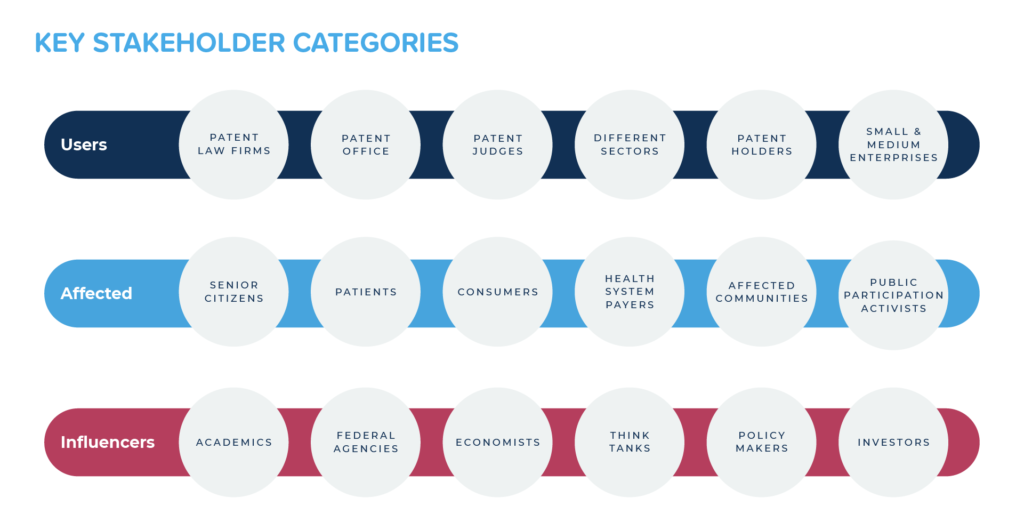What Is PCM?
I-MAK has built a new tool called Participatory Changemaking (PCM) to conduct a multidisciplinary assessment of the patent system through field research, key informant interviews, and convenings. We use the findings to create a series of blueprints for reform, identifying next step opportunities for policymakers to increase equity and inclusion in the patent system.
